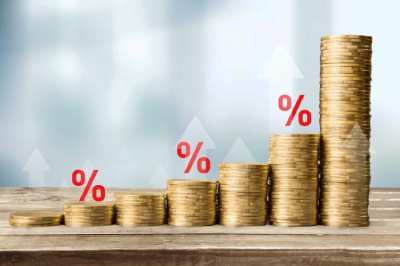Once more, the euro region economy is developing, yet may battle to keep up with the energy until the end of the year.
An official estimate that was released on Monday stated that the aggregate gross domestic product of the twenty nations that use the euro increased by 0.3 percent in the second quarter when compared to the three months prior.
Gross domestic product had fallen by 0.1% over the most recent three months of 2022, and deteriorated in the principal quarter of this current year.
Independently, official information showed that the general pace of expansion kept on falling this month. The euro area’s consumer price index increased by 5.3 percent, down from 5.5 percent in June.
However, core inflation, which excludes volatile costs for food and energy, remained unchanged at 5.5 percent in July. Services inflation and unprocessed food inflation both increased to 5.6% and 9.2%, respectively.
Regardless of the uplifting monetary information, there are signs that the locale could be going towards stagnation until the end of the year.
“The present information extensively approves our close term viewpoint, which expects exceptionally frail development in H2, and a late spring balance in the speed of disinflation followed by a moderately sharp fall in Q4,” experts at Oxford Financial matters wrote in a note on Monday.
Feeble recuperation
The euro region economy was hit hard the previous winter by the enormous expansion in energy costs that followed Russia’s attack of Ukraine — yet information from Europe’s two greatest economies on Friday had flagged that a recuperation was in progress.
In a research note released on Monday, analysts at Berenberg stated, “The eurozone economy has regained a little momentum in the last few months digesting the Putin shock of high energy and food prices.” The eurozone, like the United States, has fared better than anticipated through the recent difficulties, they added.
Nonetheless, the bank anticipates that development should deteriorate over the remainder of the year, halfway because of a lazy Chinese economy, shortcoming in worldwide assembling and a decrease in private development, covering yearly development at simply 0.6%. In 2024, it expects average growth of up to 1%.
Official data released on Friday show that GDP in France increased by 0.5% in the second quarter of this year, exceeding expectations set by economists. Germany deteriorated last quarter, yet that was an unobtrusive improvement from the past a half year, when Europe’s greatest economy was caught in downturn.
Holger Schmieding, boss financial specialist at Berenberg, said in a Friday note that France’s surprisingly good development figures were “completely because of exceptionally impressive products,” while homegrown marks of interest “performed a lot of more regrettable,” remembering a 0.4% drop for family utilization.
“The conveyance of a voyage boat to an unfamiliar purchaser contributed quite to this oddball gain in trades,” he added.
Interest for business credits in the euro region tumbled to a record low in the subsequent quarter, as per an overview distributed by the ECB last week. Business activity contracted at its fastest rate in eight months in July, according to separate survey data.
The Purchasing Managers’ Index, which measures activity in the manufacturing and service industries, saw a drop from 49.9 in June to 48.9 in the initial reading. A contraction is indicated by a reading below 50.
A halt to rate increases?
On Thursday, the benchmark interest rate in the euro area was raised by the European Central Bank by a quarter of a percentage point to 3.75 percent, marking the central bank’s ninth increase in a row.
However, at the ECB’s subsequent meeting in September, President Christine Lagarde revealed to journalists that she was considering delaying rate increases.
Despite a sharp decline from a record 10.6% in October 2022, consumer price inflation remains well above the ECB’s 2% target.















